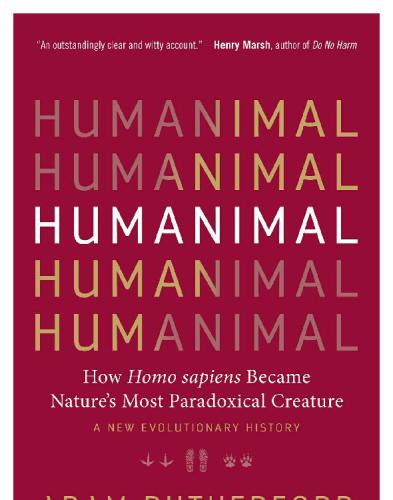
The Book of Humans
A Brief History of Culture, Sex, War, and the Evolution of Us
کتاب های مرتبط
- اطلاعات
- نقد و بررسی
- دیدگاه کاربران
نقد و بررسی

January 1, 2019
A lively exploration of "the epic meandering journey that every organism has made."That humans are conscious, cultured, and much cleverer than any other animal--but an animal nevertheless--is no secret to popular science writers. A steady stream of books explains how we got that way, and readers will not regret choosing this cheerful addition to the genre from British science journalist Rutherford (A Brief History of Everyone Who Ever Lived: The Human Story Retold Through Our Genes, 2017, etc.). Humans use tools, he explains, but many mammals and birds do the same. They are often no more than sticks poked into a hole to tease out food, but ingenious variations arise; many are adopted by others, becoming a rudimentary cultural element. In the author's native Britain, out of 1,000 sexual acts that could result in a baby, only one actually does, as he reports in a long section shooting down the belief that only humans have sex for pleasure. The author then steps back, admitting that one can never know why nonhumans engage in nonproductive intercourse, but innumerable creatures do so. Readers under the illusion that behavior like homosexuality, anal intercourse, and even necrophilia are "contrary to nature" will learn that the opposite is true. Rutherford also ably explores current conceptions and focus on cooperation through communication. Animals can deliver signals, and a few ancestors of Homo sapiens may have talked, but we took it to a new level. "We transmit information," writes the author, "not just via DNA down the generations, but in every direction, to people with whom we have no immediate biological ties. We log our knowledge and experience, and share them. It is in the teaching of others, the shaping of culture, and the telling of stories, that we created ourselves."A smooth, expert, and often startling history that emphasizes that no behavior separates us from other animals, but we remain an utterly unique species.
COPYRIGHT(2019) Kirkus Reviews, ALL RIGHTS RESERVED.

February 1, 2019
British geneticist Rutherford (A Brief History of Everyone Who Ever Lived) explores how humans resemble and differ from other living beings. Noting that the human genome has 23 pairs of chromosomes, only one pair fewer than other great apes, he presents a wide-ranging discussion of why, despite small genetic differences, human capabilities surged ahead of those of other creatures. In a section on the use of tools, for example, Rutherford considers how other animals can construct tools and use fire, abilities once thought to be unique to humans. He provides intriguing illustrations for his points, such as certain dolphins who use live sponges as nose guards when they go after prickly prey, and hawks who light twigs from wildfires so that they can spread the fire and draw prey out of hiding. In an amusing section on sex, he ponders why so little of it is actually for procreation. He also explores the human physical structures that enabled language and our development of consciousness and a sense of regret. Rutherford speculates in conclusion that our development of social culture is what may have made humans "the paragon of animals." VERDICT Engaging, accessible, and highly recommended.--Caren Nichter, Univ. of Tennessee at Martin
Copyright 2019 Library Journal, LLC Used with permission.

























دیدگاه کاربران